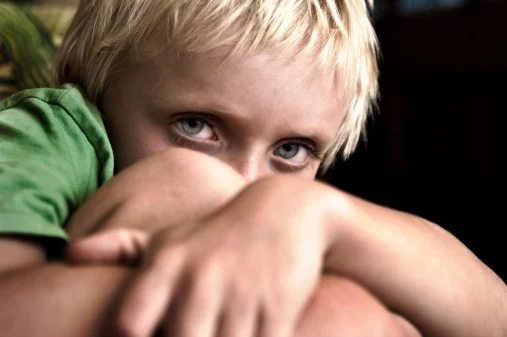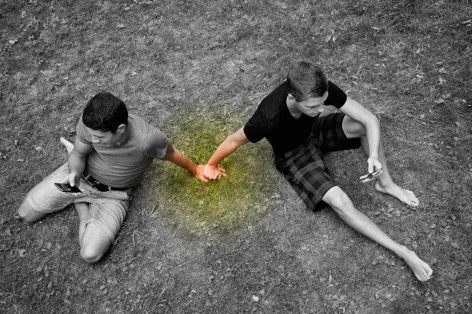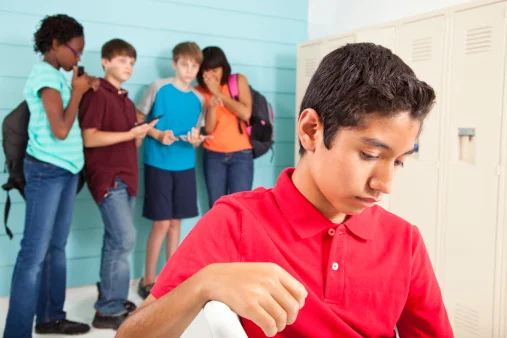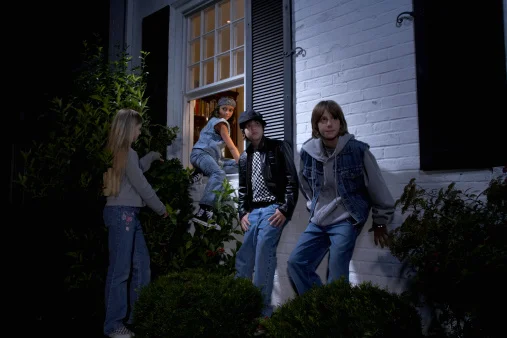+1 845 259 2974 (11 a.m to 7 p.m CST)
Teen Bullies: Stop Them from Being Criminals

Teen bullying is a serious issue affecting many adolescents today. It takes various forms, including physical, verbal, and cyberbullying. These actions can have long-lasting effects on both the victim and the bully. If not addressed, bullying can escalate into more severe behaviors, potentially leading to criminal activity.
It is crucial for parents, educators, and communities to take steps to prevent bullying before it reaches this point. By understanding the nature of bullying and utilizing tools like monitoring apps and parental controls, we can help stop this harmful behavior and protect our teens.
Understanding Teen Bullying
Teen bullying is a complex issue with various forms and significant impacts. To effectively address it, we must first understand what constitutes bullying and how it manifests among teens. Bullying among teens can take many forms, each with its unique characteristics and effects. It is essential to understand these forms to identify and address bullying effectively.
The primary types of bullying are physical, verbal, and cyberbullying.
- Physical Bullying: Includes hitting, kicking, or any form of physical aggression.
- Verbal Bullying: Involves name-calling, insults, and verbal threats.
- Cyberbullying: Occurs online through social media, texts, or emails, where bullies can spread rumors, share harmful content, or send threatening messages.
Each type of bullying can deeply affect the mental and emotional well-being of the victim.
Statistics and Impacts of Bullying
The prevalence of bullying and its profound effects on teens cannot be ignored. Understanding the statistics and impacts of bullying can help us grasp the seriousness of the issue and the need for intervention.
- According to studies, about 20% of students report being bullied.
- Victims of bullying are at higher risk for mental health issues such as anxiety, depression, and low self-esteem.
- Bullies themselves are more likely to engage in criminal behavior later in life.
Understanding these statistics highlights the importance of addressing bullying early to mitigate its long-term effects on all involved parties. By doing so, we can help create a safer and healthier environment for our teens.
The Role of Parents and Guardians
Parents and guardians play a crucial role in preventing and addressing teen bullying. Their involvement is essential in creating a supportive environment where children feel safe and understood. By actively participating in their children's lives, parents can detect early signs of bullying and intervene appropriately.
Importance of Parental Involvement
Parental involvement is key to preventing and addressing bullying. When parents are engaged, they can foster open communication and trust, which helps in identifying and resolving bullying issues.
- Support and Guidance: Provide emotional support and guidance to your teen.
- Open Communication: Encourage open conversations about their day-to-day experiences.
- Setting Expectations: Establish clear expectations regarding acceptable behavior.
Recognizing Signs That Your Teen Might Be a Bully or a Victim
Understanding the signs of bullying can help parents take timely action. Both bullies and victims exhibit specific behaviors that can indicate involvement in bullying, such as:
- Aggressive behavior towards peers.
- Lack of empathy for others.
- Frequent involvement in conflicts.
- Signs Your Teen Might Be a Victim:
- Sudden changes in behavior or mood.
- Unexplained injuries or lost belongings.
- Reluctance to go to school or social events.
By recognizing these signs, parents can address bullying early, providing the necessary support and interventions to protect their children and others.
Effective Use of Monitoring Apps
Monitoring apps are valuable tools for parents to help protect their teens from bullying. These apps offer various features that enable parents to track online activity and detect signs of bullying, ensuring their children’s safety.
Monitoring Apps and Their Features
Monitoring apps come with a range of features designed to keep an eye on teens' online activities.
- Activity Tracking: Monitors social media, messages, and browsing history.
- Alert Systems: Sends notifications for suspicious or harmful content.
- GPS Tracking: Provides real-time location updates.
Implementing Parental Controls
Parental controls are essential tools for safeguarding teens from harmful content and interactions. These controls allow parents to manage and monitor their children's online activities, providing a safer digital environment.
Parental Controls and Their Benefits
Parental controls help parents limit and supervise their children's online activities. These tools offer various benefits, such as:
- Content Filtering: Blocks inappropriate websites and content.
- Screen Time Management: Limits the amount of time spent on devices.
- Activity Monitoring: Tracks online behavior and interactions.
How to Set Up and Manage Parental Controls
Setting up parental controls on devices and platforms is straightforward. Here’s how to get started:
- Choose the Right Software: Select a reliable parental control app or built-in device settings.
- Customize Settings: Adjust filters, time limits, and monitoring preferences.
- Regular Updates: Keep the software updated to ensure effective protection.
Tips for Balancing Monitoring with Trust and Privacy
Balancing monitoring with trust and privacy is crucial to maintaining a healthy parent-teen relationship.
- Open Dialogue: Discuss the reasons for using parental controls with your teen.
- Set Boundaries: Establish clear rules and expectations about device use.
- Respect Privacy: Avoid overly intrusive monitoring to maintain trust.
Legal and Ethical Considerations
Addressing bullying involves understanding its legal and ethical implications. Parents must navigate these aspects carefully when using monitoring apps and parental controls. Bullying can have serious legal consequences. It’s important for parents to be aware of the following:
- Cyberbullying Laws: Many regions have specific laws against cyberbullying.
- School Policies: Schools often have anti-bullying policies and disciplinary measures.
Ethical considerations are equally important when implementing monitoring tools.
- Informed Consent: Ensure your teen is aware of the monitoring.
- Privacy Balance: Respect your teen’s privacy while ensuring their safety.
- Transparency: Be open about the use and purpose of monitoring tools.
By considering these legal and ethical aspects, parents can effectively protect their teens while maintaining trust and respect.
How These Apps Can Help
These apps can help parents detect bullying by monitoring online interactions and identifying concerning behavior patterns.
- Detect Harmful Content: Identifies and alerts parents about bullying or harmful messages.
- Monitor Social Media: Keeps track of posts and interactions on social media platforms.
Encouraging positive behavior in teens is crucial for preventing bullying. By promoting empathy, kindness, and respect, parents can help their children develop healthy relationships and reduce harmful behaviors.
Parents can use various strategies to foster positive behavior in their teens:
- Model Behavior: Demonstrate empathy and kindness in your interactions.
- Positive Reinforcement: Reward and praise respectful and kind actions.
- Educational Activities: Engage in activities that teach empathy, like volunteering or reading books about different perspectives.
Communicating with Your Teen
Effective communication is essential for guiding teens in understanding and handling bullying. Open and honest conversations help build trust and encourage responsible behavior.
Importance of Open and Honest Communication
Open communication creates a safe space for teens to express their feelings and experiences. It helps parents understand their children’s challenges and provide appropriate support.
- Build Trust: Create an environment where your teen feels comfortable sharing.
- Active Listening: Listen attentively to your teen’s concerns without judgment.
Here are some tips for discussing bullying and online behavior with your teen:
- Start Early: Begin conversations about bullying and online safety early.
- Be Honest: Use real-life examples to explain the consequences of bullying.
- Encourage Responsibility: Teach teens about responsible online behavior and digital etiquette.
By fostering positive behavior and maintaining open communication, parents can help their teens navigate social challenges and build a foundation of respect and empathy.
Preventing teen bullying is a shared responsibility that requires active involvement from parents, educators, and the community. By understanding the various forms of bullying and their impacts, parents can take proactive steps to protect their children. Monitoring apps and parental controls provide effective tools for tracking online activity and ensuring a safe environment.
Encouraging positive behavior through empathy, kindness, and respect is equally important. Open and honest communication with teens helps build trust and guides them towards responsible behavior. Together, these efforts can help stop bullying before it escalates into criminal activity, creating a safer and more supportive environment for all teens.





















